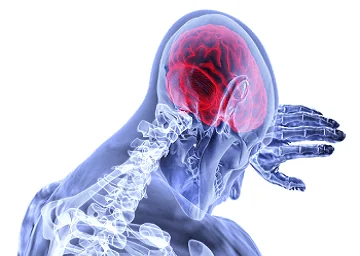Management of Traumatic Brain Injury Complications
Management of Traumatic Brain Injury Complications – The brain powers the motor and sensory function of the entire body and, unlike other body parts, damage to neurons of the brain is typically permanent. While there has been an influx of research that has changed the diagnosis and management of these injuries, traumatic brain injuries must still be taken seriously. According to some of the numbers that have been released by the Centers for Disease Control and Prevention (CDC):
- The most common age group that is admitted to a hospital for a traumatic brain injury is people aged 75 and older.
- The highest rate of ER visits is seen among children aged 0 to 4 years old.
- Slip and fall injuries are the most common causes of traumatic brain injuries seen in an emergency room.
- Auto accidents are the most common reasons why children and adults are admitted to a hospital for a traumatic brain injury.
These statistics demonstrate that traumatic brain injuries are still a significant cause of morbidity and mortality among people of all ages. Because of this, it is essential for everyone to know what to do if they suffer a traumatic brain injury.
Treating Complications of a Severe Brain Injury
If someone has sustained a traumatic brain injury, several complications could arise in an acute setting. Some of the difficulties that might need to be addressed include:
- Bone Fracture: It is not unusual for people to sustain a fractured skull with their traumatic brain injury. This could be due to either a blunt or a penetrating impact to the head. If the skull fracture is severe, the bone fragments could cause damage underneath.
- Contusion: A contusion is the medical term for a bruise. Like other parts of the body, the brain tissue could become bruised. This can lead to a severe headache which could require prescription medications to manage.
- Bleed: This is one of the most severe complications. A brain bleed could cause an increase in the intracranial pressure which might even lead to a cerebral herniation. This is what happens when the brain tissue is squeezed through one of the holes in the skull. This leads to severe damage to the neuronal tissue which might result in death.
Once families go home, some other complications might arise. These could include:
- Memory loss
- Recurrent headaches
- Trouble with vision or hearing
- Personality changes
- Mental health concerns such as depression, anxiety, and anger problems
It is important for families to be patient with their loved ones as they try to recover from a traumatic brain injury. It is essential for everyone to remember that help is available.
Assistance from a Lawyer
When someone suffers from a serious brain injury, it is crucial to address the entire family and not just the individual. It is normal for families to have questions and concerns. Some of the sources of stress include:
- Questions about hospital bills and insurance coverage
- Issues related to employment
- Problems returning to school or work
- Concerns about the circumstances surrounding the accident
When families are looking for help following a severe brain injury, it is essential to speak with an experienced Davis brain injury lawyer. Make sure to review all of the options with a trained legal professional before making any decisions. You and your family could be deserving of financial compensation.
Related Articles
Davis Brain Injury Lawyers
I’m Ed Smith, a brain injury lawyer in Davis. The complications of brain injuries can be severe. If you or a loved one has suffered injuries in a car accident, call me at (530) 392-5400 or (800) 404-5400 for free, friendly legal advice.
I am a member of the Million Dollar Advocates Forum.
You can see our verdicts or settlements here.
Visit Yelp, Avvo, & Google to see our past client reviews.
Management of Traumatic Brain Injury Complications: AutoAccident.com
Image Attribution: The photo at the start of this article is seen in its original form on Unsplash. The image has been reproduced here with permission/ Management of Traumatic Brain Injury Complications.
:dr cha [cs 693] cv

